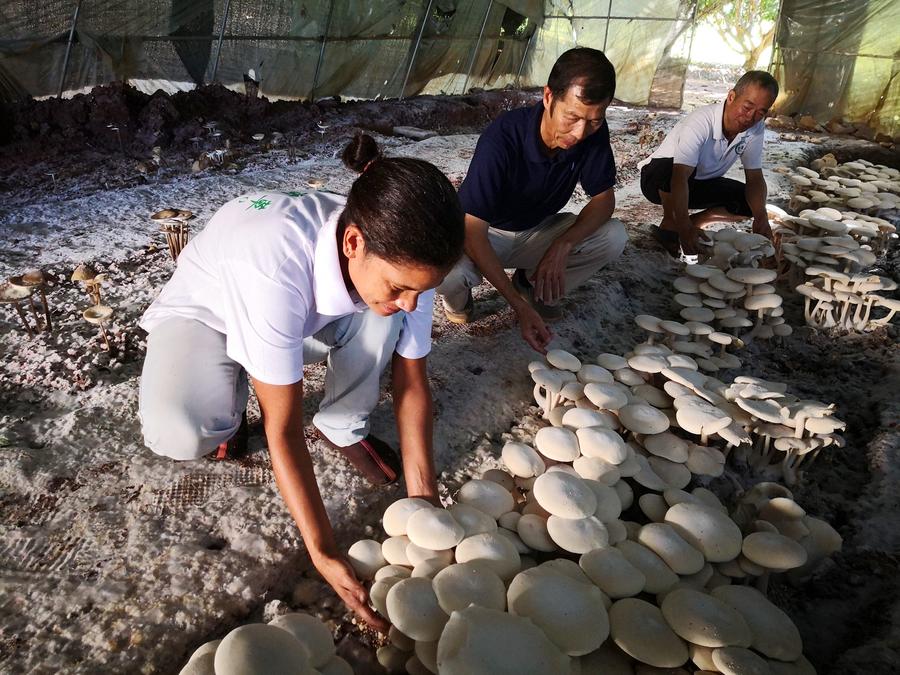Xiplomacy: How Chinese hybrid grass technology is changing the world for the better


KIGALI/FUZHOU -- It was pleasantly warm and dry in Rwanda in early August, and young farmers in southern province were celebrating a bountiful harvest. Their hands were not bunched with corn or rice but with mushrooms, cultivated with the help of a technology transferred from a country far away to this "land of a thousand hills" in Africa.
Joining the celebration was Professor Lin Zhanxi. Since the 1980s, the octogenarian scientist has led a research team on Juncao technology in East China's Fujian province. The hybrid grass technology enables fungi to grow on grass-based substrates instead of felled trees, a solution to the mushroom industry's threat to forests.
The plant's name means "mushroom" and "grass" in Chinese. Its versatility is a key feature, allowing it to grow edible mushrooms, provide livestock feed and help battle desertification.
Thanks to the active and visionary promotion by Chinese President Xi Jinping, Juncao is thriving in and beyond China, improving livelihoods and fostering sustainable development in developing nations across the Asia-Pacific region, Africa and Latin America.
























